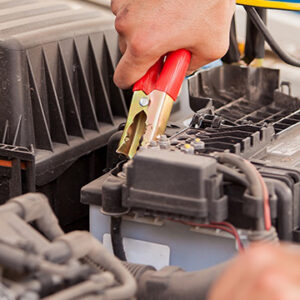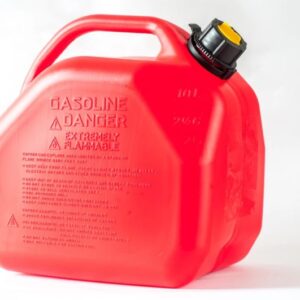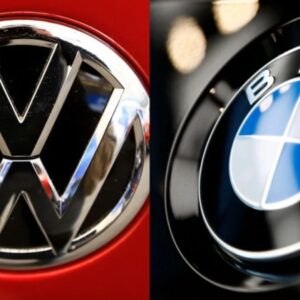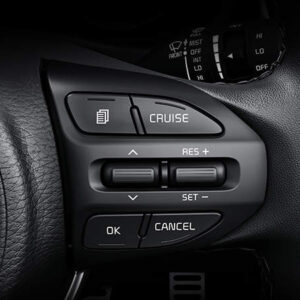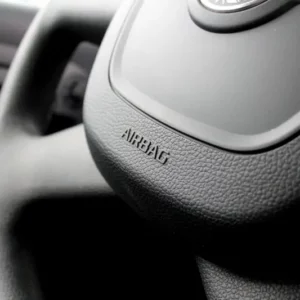Where is the VIN number on a car? All cars have a vehicle identification number, a 17-character alphanumeric identification unique to that vehicle. Commonly known as a VIN number, your vehicle’s ID is assigned when it is manufactured. And just as your Social Security Number (SSN) is unique to you, a VIN reveals details specific to your car only.
Unlike your nine-digit SSN, it is doubtful you have memorized your VIN. Indeed, you might never think of that figure until someone asks for it, namely your insurance company, a repair shop, or a government agency. Unless you have your VIN written down or have a picture of it residing on your smartphone, you’ll have to locate it.
What Is A VIN Number?
VIN is an abbreviation for “vehicle identification number.” (Saying “VIN number” is a little redundant. Regardless, we all tend to do it.) A VIN is a series of 17 numbers and letters that an automobile manufacturer assigns to every individual vehicle. Vehicles made prior to 1981 may have fewer than 17 characters.
Every VIN number is different, and a VIN number will not change during the lifetime of a vehicle. Think of your car’s VIN number like its DNA—it’s unique to your vehicle, doesn’t change, and can provide valuable information about the vehicle.
Where Is The VIN Number On a Car?

The location of the VIN number will depend on the vehicle manufacturer. In most cases, however, you can find the VIN in the following places.
Driver’s Side Dashboard
The driver’s side dashboard is the most common spot for the VIN. If you look through the windshield of a car, you should be able to find it near the bottom corner. It’s a small plate with characters that are about a quarter of an inch in size.
Driver’s Side Door Jamb
You may also locate the VIN on the driver’s side door jamb. It will be on a sticker that includes other important details about the vehicle such as the name of the manufacturer, tire and rim sizes, and manufacturing date. The sticker may also feature a VIN barcode.
Under the Hood
If you pop the hood, you’ll likely find the VIN number. Depending on the vehicle, it may be in front of the engine block, on top of the radiator, or on the driver’s side firewall. The VIN will be listed on a black, white, or silver sticker.
Spare Tire
The VIN may be on the spare tire that came with the vehicle. To check, pick up the tire and look underneath it. If you’re unsure of whether the car has a spare tire, look in the trunk as that’s where it’s usually kept.
Documents
You don’t have to be near the car to know its VIN number. You may look up the car’s title records or check its service records, insurance card, and insurance policy documents. If the car insurance provider has an app, it can be found there as well once you log in.
Owner’s Manual
If the car is new, there should be an owner’s manual. The manual will likely include the VIN or at the very least tell you where you can find it.
What Does A VIN Number Tell You?

Your VIN number can tell you a lot about your car, including its airbag type, country of origin, engine size, and even turning diameter. When you’re performing a VIN check on your car and need to know how to decode VIN numbers, keep the following in mind:
- The first character of your VIN indicates the continent where the vehicle was built. Was it built in North America or overseas?
- The second and third characters tell you the manufacturer of your car, like Toyota or Honda.
- Characters four through eight indicate the vehicle brand, as well as engine size and type. How many cylinders are you firing on?
- The ninth character in your VIN number is a security code that indicates that the VIN number is authorized for use by the manufacturer.
- The tenth character indicates the model year of the car, like 2008, 2009, etc.
- The eleventh character indicates the assembly plant. Different parts of a car might be made in different countries, then sent to one plant to be put together to make your car.
- The final string of characters in the VIN indicates the unique serial number of the car. These digits can help prevent VIN fraud.
Keep in mind that vehicle manufacturers use different coding systems and some devise their own codes for certain parts of a VIN. That can make it difficult to decode your VIN, which is why we recommend running it through a VIN decoder.
What Can You Use a VIN For?
There are a number of situations in which you’ll want to find out the VIN of a car including:
Buying a Used Car
If you find a used car you like, it’s a good idea to check out its history before you buy it. To do so, you’ll need the vehicle’s VIN. The VIN can give you access to valuable information like previous owners, accidents, and repairs. You may also learn whether the car was previously recalled and what was done to resolve the issue.
Selling a Car
When you sell your car, you and the buyer will need the VIN number. The VIN will help you transfer the car title to the new owner. Since the VIN is a crucial part of the transfer process, it’s essential to ensure it’s correct.
Refinancing an Auto Loan
Your VIN helps provide information about your vehicle in the bookout process, the appraisal that determines your car’s value. That value is then used to calculate your loan-to-value ratio. (Learn more about auto loan refinancing.)
Maintaining or Repairing a Car
When you take your car into the dealership or auto shop for a maintenance service or repair, they’ll likely need its VIN. It will give them information about its engine, brake, transmission, and other systems.
Determining Recalls
The VIN can tell you whether a car manufacturer has issued any safety recalls. All you have to do is go to the National Highway Traffic Safety Administration’s recall tool and plug it in. The tool will show any recalls that affected your car within the past 15 calendar years. It will also list any incomplete recalls.
Shopping for Car Insurance
If you’d like to buy a car insurance policy, providers will likely ask you for the VIN when you shop around. The VIN can give them information about accidents, repairs, and other details that may impact the quote you receive. Once you decide to move forward with a policy, the VIN will confirm the vehicle that correlates to the policy.
Submitting Warranty Claims
Every now and then, you may need to file a warranty claim to pay for the cost of a repair. When you do so, you’ll need to provide details about your vehicle and state your VIN number. This will let the manufacturer know whether your car is still covered by the warranty and what types of repairs it’s eligible for.
Handling a Stolen Car
In the unfortunate event your car gets stolen, your VIN will be useful. You may go to a stolen car database called National Insurance Crime Bureau’s (NICB) VINCheck to find it. If law enforcement or insurance companies locate your vehicle, VINCheck will let you know.
VIN Decoder Vs. Vehicle History Report
The characters in a VIN are not always straightforward, and it can be time-consuming to compare each character string to a decoding chart yourself. Instead, use an online VIN decoder to quickly get a full report of your car’s specs.

A VIN decoder will tell you exactly what’s installed in your car, but it won’t tell you about any repair, service, or damage history of your car. When you need to know in-depth info about how a car has been cared for or maintained, use the car’s VIN to run a thorough vehicle history report.
Why Is My VIN Number Important?
In addition to helping you understand your car’s history (or the history of one that you’re buying), your VIN number can help you keep your car protected, accurately registered, and properly insured.
- Help find your stolen car: In the event of theft, authorities can use the VIN to match a stolen car with the rightful owner (and hopefully return it in one piece!).
- Check insurance status: Your state’s department of motor vehicles may also use your VIN to check your auto insurance information before issuing your vehicle’s registration tags. If you list a different or incorrect VIN on your insurance documents, your state’s DMV may consider your car uninsured and refuse to register it.
- Help detect criminal activity: Running a VIN check and vehicle history report can also indicate any potential criminal activity surrounding a car. If you see any fishy activity on a vehicle history report (like registration in wildly different locations within a short period of time), it could be worth investigating to ensure you’re not purchasing a car with a criminally cloned VIN (or a car that’s just been stolen!).
One of the most important reasons to do a VIN lookup is to stay ahead of safety recalls. A safety recall is issued when a vehicle (or part of a vehicle) fails to meet federal safety standards. Many car owners have no idea when a safety recall has been issued for their specific vehicle, especially if they bought the car used.
FAQs
What does the VIN number look like?
The VIN is 17 characters long and is comprised of both digits and capital letters. If your VIN appears to be any shorter than this, it may be a model manufactured before 1981, when VINs were between 11 and 17 characters.
How long is the VIN number?
A VIN comprises 17 characters (digits and capital letters) that act as a unique identifier for the vehicle. A VIN displays the car’s unique features, specifications, and manufacturer.
Is a serial number the same as a VIN?
A Vehicle Identification Number (VIN) (also known as a serial number) is a 17 character code of letters and numbers that identifies your vehicle. You can find your VIN in several places: On top of the dashboard on the driver’s side. Inside the driver’s side door.
Above is information about Where is the VIN number on a car? that we have compiled. Hopefully, through the above content, you have a more detailed understanding of What does a VIN number tell you? Thank you for reading our post.
